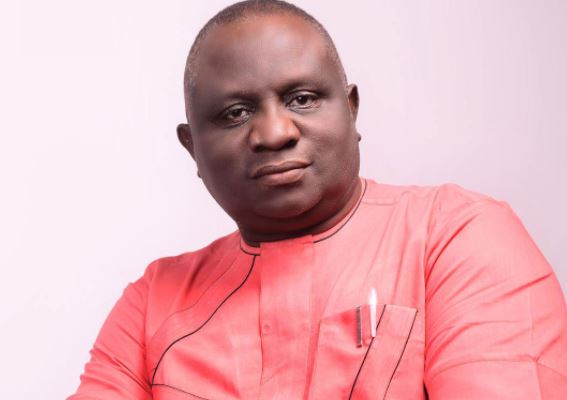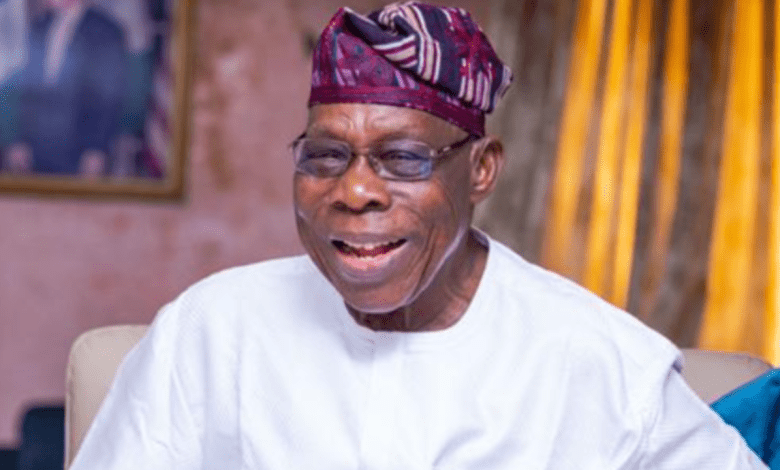
Colonialism and Intergenerational Transfer of Languages; The Yoruba Experience
July 20, 2024
Let’s Change the Structure of this Country
July 20, 2024By Azeem Salako.
“Africa’s democratic experiment is being undermined by fascist democrats who use violence, intimidation, and manipulation to maintain their hold on power.” – Patrick Loch Otieno Lumumba
Judicial usurpation
Africa may be on the verge of witnessing another example of fascist democracy in President Tinubu’s administration, which undertakes a system of judicial usurpation as a means of political restructuring and public policy. Two disconcerting examples have emerged. Firstly, the the Supreme Court upheld the results of all governorship elections as declared by INEC in the 2023 election, and the second is Supreme Court judgment pronouncing that local governments should receive their allocations directly from the federation account.
Background to judicial usurpation?
The context of judicial usurpation, though euphemized by the US as “judicial legislation,” can be traced to the United States. In 1803, the United States of America, under President Thomas Jefferson, won a case against William Marbury, contrary to the Act of 1789. Jeferson’s administration marked a breakaway in US political history as the Supreme Court granted itself the power to declare laws unconstitutional instead of requiring legislative amendment. This event, faced with public criticism, political instability, and legal uncertainty, has been sustained in the US, particularly in foreign policy.
In his work, The Tempting of America: The Political Seduction of Law, Robert Bork cited the Marbury cases as one of the examples of judicial usurpation and described it as an occurrence when the court imposes its own views on the nation rather than enforcing the constitution as it was written. Raoul Berger highlights a major implication of this as the transformation of the judiciary into a political agency. However, contrary to the arguments that “judicial legislation” (judicial usurpation) strengthens judicial independence and makes the judiciary co-equal to other arms of government, critics have said it is conceived and concealed in a clientelistic alliance between the heads of the executive and judiciary in the manner that Bork (1990) said the court orders the executive to take certain actions that are not written in the constitution.
Features of Judicial Usurpation
Here, we can draw attention to the nuances and implications of “judicial usurpation” with the examples of Venezuela under Hugo Chavez, which led to democratic erosion and state collapse. The subtlety of judicial usurpation is that it is concealed in clientelism, populism, and bypassing.
- Clientelism—between the heads of the executive and judiciary.
- populism—leveraging mass support to consolidate absolute executive power; and
iii. Bypassing—to boycott political institutions to suppress and repress dissidents. The consequences and repercussions of this practice are always ruthless.
Judicial Usurpation Under President Tinubu.
Many political commentators and legal experts have argued in the above sense to interpret the Supreme Court’s affirming judgments of all governors that INEC declared winners in the 2023 election. The second is the recent Supreme Court judgment pronouncing that local governments should receive their allocations directly from the federation account. Both cases have dispositions that are contrary to the constitution and judicial precedents.
- Supreme Court and 2023 Governorship Election
The 2023 election marked the first time ever in Nigeria’s fourth republic that the Supreme Court upheld the results of all governorship elections as declared by INEC. The Supreme Court had sacked Umar Farouk, Kaduna State (1999), Okwezili Nwodo, Enugu State (2003), Dr. Chris Ngige, Anambra State (2007), Olusegun Agagu, Ondo State (2011), Ekiti State (2015), and Emeka Ihedioha, Imo State (2019), and replaced them with their opponents who challenged their victory.
It is instructive to note that the dismissal or upholding of an election does not necessarily determine the credibility of the election. An election is deemed credible when it exemplifies democratic tenets, including transparency and integrity, and, in the case of judicial review, when for example, judgments are consistent with judicial precedents. This is not the case with the 2023 election, where the Supreme Court upheld all of the results of the governorship elections despite claims of irregularities, including those made by reports from foreign observers. We can demonstrate a test case (of calculable bias) in Plateau State, where the court sacked all of the PDP’s candidates whom INEC had previously declared winners, citing the PDP’s inability to legitimately elect all of its candidates. However, the court upheld only the election of the PDP governorship candidate, Muftwang, thereby sustaining the trend of upholding the election of all governors.
State governors in Nigeria wield enormous power, and being the leaders of their respective political parties in the state, they control substantial influence to put the polity under intense pressure. In actuality, the breakaway within political parties, the polarization, and the regrouping of political heavyweights against incumbents (presidents) usually stem from the outcomes of the court’s election review. President Tinubu’s administration is being observed to avoid such political erosion. At the same time, the antecedent and operation of the administration have also been carefully observed to be aimed at building a prebendal cross-partisan alliances, but deploying judicial usurpation instead of constructive dialogue for this purpose undermines democratic institutions.
- Supreme Court Judgement and Local Government Autonomy
The local government system should have constitutional status, devolutionary power, elective officials, established tenure, an independent electoral body, financial autonomy (to generate and spend funds), and both vertical and horizontal accountability. What is in practice in Nigeria is the direct opposite of these fundamental features; hence, it is mere local administration. However, while it is compelling that we endeavor to ensure that local government operates as a third-tiered government, the usurpation of the constitution should not be encouraged to achieve this. This, in the interim, is what I understand the recent Supreme Court judgment has done.
The constitutionality of federalism in Nigeria has three arms of government: the executive, legislature, and judiciary, and each performs a distinct responsibility. A legislature cannot take on the responsibility of controlling the police, the executive cannot decide on an election tribunal, and the judiciary cannot enact new laws. Where these arms perform overlapping functions, such as the executive freeing inmates, the legislature signing bills into law, and the judiciary making interpretative law amendments, they are all contingent upon the provisions inherent in the same constitution.
The Position of the Nigerian constitution on local government.
It is a settled position that the Nigerian 1999 constitution is poorly drafted; if deliberately, it cannot be established. And as a result, there are conflicting and inconsistent provisions that have been widely criticized and suggested for amendment. But this author submits that the autonomy of local government is not in this category of constitutional contradiction, as being argued in some quarters.
Section 3 of the 1999 Constitution is clear on the type of power the drafter of the Constitution accorded local government. Specifically, Section 3(1) states: “The Federal Republic of Nigeria shall consist of the following federating units, namely:
(a) The Federal Government;
(b) The thirty-six states listed in Part I of the First Schedule to this Constitution; and
(c) The Federal Capital Territory, Abuja.”
This section establishes the federal structure of Nigeria, recognizing the federal government, the 36 states, and the Federal Capital Territory (FCT) as the constituent parts of the federation, there by establishing the Nigerian federalism based on a dual structure.
The fourth schedule, which listed the functions of the local government, did not imply any contradiction against this dual structure because it only stated functions to be performed by the local government, which may be interpreted as roles to be discharged under the supervision and control of the state government. This position is further proven by Section 162 (5 and 6), which creates a state joint account for both the state and local government under the control of the state government.
Discussion
Section 3 (1) highlights the structure of the Nigerian state without mentioning the local government as a tier while section 162 ( 5 and 6) of the Nigerian 1999 Constitution provide that the state and local governments has a joint account through which the money from the federation account is shared between the state and local governments. This is why Section 162(6) of the 1999 Nigerian Constitution states:
“(6) Any amount standing to the credit of a local government council in the Federation Account shall be paid directly to the State Joint Local Government Account and distributed to the local government councils in accordance with the provisions of this Constitution and the Revenue Allocation Act.”
These particular sections particularly section 162 (5 and 6) has yet to be repealed through legislative amendment, and it leaves the question of how the Supreme Court ruled that the local government should receive its allocation directly from the federation account. Thus, contrary to public opinion, it is unfounded to consider Sec. 162(6) as an impediment to the spirit and practices of federalism in Nigeria.
For instance, Article 32 of the Brazilian Constitution states that “the state has the power to regulate the affairs of the municipalities.” In the same vein, Article 243(G) of the Indian Constitution provides that the legislature of the state may by law confer power and authority upon panchayats.” And Article 30 of the German Constitution empowers that “the state shall have the power to regulate the affairs of the municipalities and counties.” In the US, the Tenth Amendment and Article IX clause 1 have been interpreted and applied to create local administration. Article 28(2) of the Basic Law for the Federal Republic of Germany provided that “the municipalities and counties have the right to regulate their own affairs within the framework of the law.” In the Swiss constitution, Article 50(1) provided that “the cantons have the right to regulate their own affairs within the framework of the constitution and the laws.”
These examples and Section 162(6) of the Nigerian Constitution, though expressed in different languages and nuances, have only emphasised the dependency of the local government on the state, region, or province, as the case may be, therefore providing the nuances of local governments in federalism.
The Supreme Court activism judgement (for local government self-rule), to this extent, did not only err but completely shows a misunderstanding of the rationality and, I dare add, the constitutionality of the local government system in federalism from any perspective, legalistic or globalistic.
Dangers of Supreme Court as a Court of Public Policy.
Nigeria is not only a federation but also operates as a democracy. For this reason, the behaviour of the court and any authority must conform to the letters of the constitution. And in the case where there is a need for an amendment, the constitution has provided the process. Section 9 of the 1999 Constitution is instructive and relevant as a guide, having empowered legislative arms with the vested power to amend the constitution.
Applying the principle of the Supreme Court as a court of public policy in this elusive context undermines the whole idea of co-equal arms, checks and balances, and political institutions.
The Supreme Court of Nigeria must understand the importance of adhering to the provisions of the constitution. There is no country where judicial usurpation has not led to crises, instability, and collapse, especially when done in favour of the national executive, which draws attention to a possible connection and connotation of prebendalism.
Earlier, I gave the example of Venezuela under Hugo Chavez and the role the judiciary plays in abusing the court and manipulating the constitution. These ignoble events later led to repercussions beyond the imagination of the culprit judges. The judicial usurpation, supposedly done to promote populist policies, later became a precedent for the court to amend the constitution without the legislature, elongating tenure, suppressing civil society, and consolidating executive power.
The Nigerian state is weak and shadowy, hence vulnerable to an imminent collapse if this situation persists. In Africa, where the executive has a prebendal and an overarching influence on the appointment of judges and the primacy of clientelism is supernormal, it makes the state vulnerable to autocracy and could be an invitation to anarchy. It will also mean that the Supreme Court can wake up tomorrow and say Osun State, for instance, has been scrapped because it contributes insignificant revenue to the federation account, arguing that this jeopardizes the intention of the constitution that expects a federating state to be viably self-sufficient.
I hope that we are prepared for the days ahead. Thankfully, the Supreme Court has the power to review itself, and I hope he heeds the advice in this line of thought.
Citation: Marbury v. Madison, 5 U.S. 137 (1803).
Azeem Salako is a political researcher on African politics and integration.





